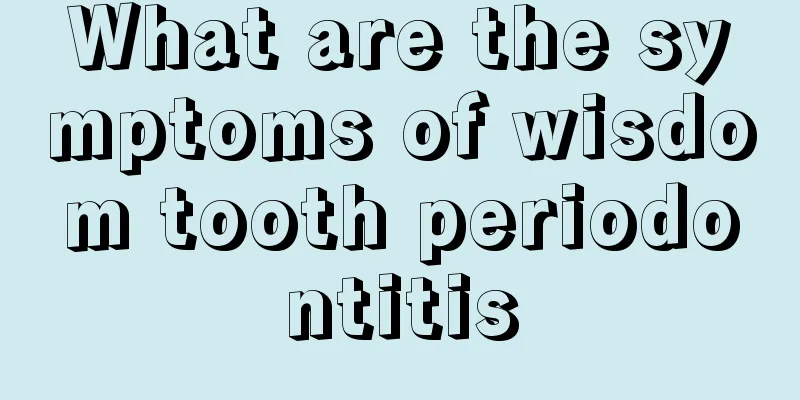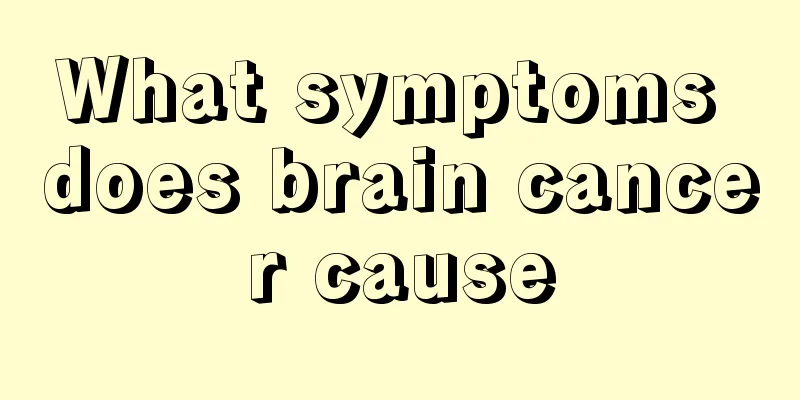What are the symptoms of wisdom tooth periodontitis

|
I believe that many of us have experienced wisdom teeth problems. This is not surprising, but it has brought great negative impacts to ourselves. Many people worry about how to treat it more effectively. If the symptoms can be discovered in the early stages of wisdom teeth and treatment can be carried out in a timely and effective manner, the effect will be very good. Let us now learn about the symptoms of wisdom tooth periodontitis. 1. The gums in the periodontal pockets show varying degrees of chronic inflammation, dark red or bright red in color, soft in texture, with no stippling, rounded edges and no adhesion to the tooth surface. Some patients have partial fibrous hyperplasia and thickening of the gums due to long-term chronic inflammation. The surface inflammation is not obvious, but after a periodontal probe is inserted, there is bleeding and pus on the inner wall of the pocket. The probing depth of the periodontal pocket exceeds 3 mm and there is attachment loss. If there is gingival recession, the probing depth may be within the normal range, but the cementoenamel junction can be seen to be exposed, so attachment loss can more accurately reflect the destruction of periodontal supporting tissues. 2. Inflammation of periodontal pockets, loss of attachment and alveolar bone resorption occur in the early stages of periodontitis, but because the degree is relatively mild, there is generally no obvious discomfort. The main clinical symptoms are bleeding when brushing teeth or eating, or bad taste in the mouth, but they usually do not attract the attention of patients. Only when deep periodontal pockets are formed, loose teeth, weak or painful chewing, or even acute periodontal abscesses occur, do they become serious? Go to the doctor, it is usually in the late stage. 3. Occlusal trauma can cause vertical absorption of the alveolar bone, widening of the periodontal membrane space, and loosening of teeth, but simple occlusal trauma will not cause the formation of periodontal pockets. When the excessive bite force is eliminated, the alveolar bone can repair itself and the tooth mobility returns to normal. When teeth with periodontitis are accompanied by occlusal trauma, mobility can be significantly aggravated. Common causes of occlusal trauma include nocturnal bruxism, clenching of teeth, premature contact and cusp interference, high restorations and excessive orthodontic force. Acute trauma can also cause teeth to loosen or even dislocate. The above content introduces us to the symptoms of wisdom tooth periodontitis. I believe that everyone has a clearer understanding of these contents. Each of us must know something about this aspect in advance, which can help us cure our wisdom tooth problems faster and better and help everyone have a healthy body. |
<<: What are some ways to improve sleep and diet?
>>: What causes breast swelling and pain?
Recommend
How long does it take to cook green vegetables?
We cannot do without green vegetables in our diet...
Experts introduce some symptoms of advanced lymphoma
To avoid the trouble of lymphoma, we must first u...
Can skin cancer be cured
Is skin cancer curable? Yes, in many cases, skin ...
What can I use to wash silver to make it brighter
Silver is a relatively precious metal. Many peopl...
How do you get glioma
Some diseases have signs when they come, such as ...
Can stage 3 brain cancer be cured?
Brain tumors, also known as intracranial tumors, ...
What are the fetal anomaly screening tests during pregnancy?
All parents do not want to give birth to a deform...
Bacteria in urine sediment are high
Many women need to do routine urine tests after t...
What to do about cervical precancerous lesions? What are the causes of cervical precancerous lesions?
Cervical precancerous lesions refer to lesions be...
What does rotten durian flesh look like
Durian has a particularly bad odor, and you can&#...
Precautions for postoperative care of glioma patients
Now glioma has become a common disease in life. O...
What are the issues regarding child custody in divorce
Nowadays, many people are very concerned about th...
What should you pay attention to in your diet for fibroids
What should be paid attention to in the diet of f...
How to remove the smell of low-quality bags
Every girl likes bags very much. In the view of f...
What should be paid attention to when treating liver cancer? Three major things to pay attention to when treating liver cancer
Adhere to comprehensive treatment. Surgery, radio...









